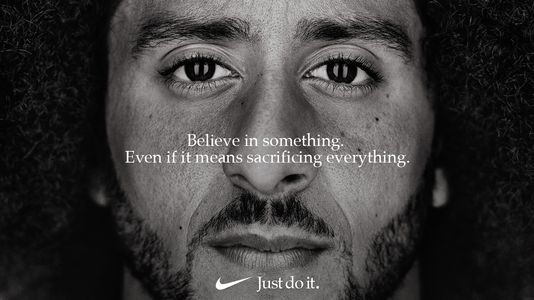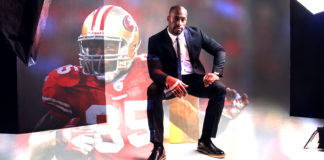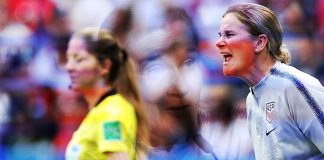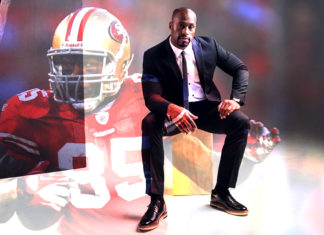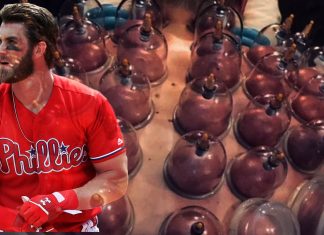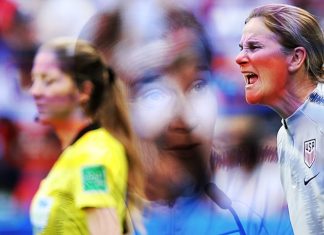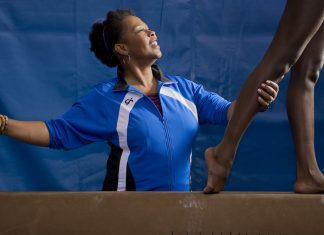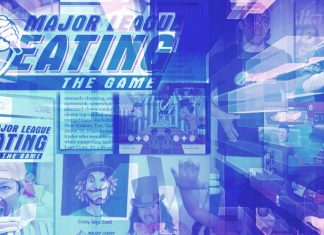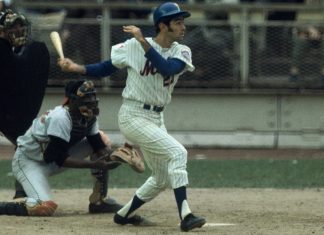Ok. I know what you’re thinking.
“Bro, LeBron’s not gay.”
“He’s got a wife and kids.”
“How could you even say something like that! He couldn’t be gay!”
My response to you is yes, I know LeBron James is not gay. That’s not really the point. The point is that so many of the people who read that headline were sent into a flustered rage by the mere suggestion that someone like LeBron, an era-defining force on the field of play, could identify as something less than heterosexual and cisgender.
Sure, it’s not LeBron, but it’s somebody. It’s multiple somebodies. I will never be able to prove it, but there is not a doubt in my mind that we’ve missed out on a list of queer and trans world-beaters from all over the sporting landscape. We’ve already missed out on the first queer All-Star, All-Pro, All-NBA, and probably the first MVP.
The world recently witnessed Amanda Nunez becoming the UFC’s first openly queer champion. While there were likely queer fighters on top before her, it seems that a sport many view as barbaric has outstripped our major team activities in the realm of social progress.
But how could that be?
It largely comes down to toxic masculinity and locker room culture. It’s a gross chain of reactions where queer identities are conflated with femininity and femininity is conflated with being lesser. Everyone with an identity that falls outside the hegemony of cis, heterosexual maleness is assumed to lack the necessary aggression and mental fortitude to make it in the big leagues.
The locker room environment of team sports creates an insulating bubble where these ideas fester amongst each other. The cesspool grows deep enough that athletes can forget what the rest of the world has decided isn’t ok anymore.
The problem is very easy to identify, but how do we find a solution?
When Jason Collins came out in 2013, many people expected the floodgates to open and for queer players in the Big Four to pour out of the closet into open daylight. We didn’t get that. As it turns out, it takes more than journeyman role player to undo a lifetime of negative socialization. Shocker.
What we did get is Michael Sam. The openly gay SEC co-Defensive Player of the Year as drafted at the end of the seventh round of the 2014 NFL Draft. According to league sources, it was because a 260-pound man suddenly became ‘too small’ to play defensive end.
Sure.
As Sam bounced from camp to camp, thinly-veiled coded phrases like ‘character issues’ and ‘locker room distraction’ began to pop up. These are the generic media-trained phrases that coaches default to when they don’t want to say what’s really on their minds. If there’s any question about whether there is still a culture of discomfort in front offices and coaching quarters around sexual identity, just look at Eli Apple and Derrius Guice. The two NFL prospects were allegedly asked about their sexualities at the NFL Combine during the football equivalent of a job interview.
We all appreciate the courage it took for Jason Collins and Michael Sam to go public with their personal lives. Their hearts called them to do whatever they could to impact the queer world for the better, and they did. However, this may be a classic case of Christian Bale’s Batman. They were the heroes we deserved, but not the ones we needed.
Jason Collins was a veteran at the end of a contract who wasn’t sure if he would get -re-signed again anyways. Michael Sam was a college standout who never got a fair opportunity because of the “distraction” having a gay man on the roster would cause. Neither of these brave souls was equipped to offer what queer athletes need, which is staying power.
That’s where LeBron comes in.
If LeBron were to come out as a member of the LBGTQ2IA community, he could offer cultural longevity. He is the icon who defines an era. The otherworldly talent that no amount of “baggage” or “distraction” could outweigh. Someone like James, Aaron Rodgers, or Bryce Harper could outlast the initial media circus and begin the process of normalization.
Normalization is the end goal for queer athletes. In order for that to happen, the existence of queer people in elite athletic spaces has to become something that doesn’t merit space on TSN’s bottom scroller, much less CNN’s.
While LeBron is not gay, he embodies what the community needs. A star talent whose ability to perform on the field of play transcends all other aspects of their story. A star who, barring injury, is guaranteed to have a long, high-profile career that would allow (or force) the sport to get used to having openly queer athletes on the field and in the locker room.
LeBron also has the credibility of a Mount Rushmore caliber legacy based on not only his own skill but the opportunities he was afforded as a heterosexual man. There is a legitimate question as to whether an openly queer athlete would get the opportunities required to reach that level of stardom. Michael Sam had two sacks in a preseason game, and he didn’t even make the Rams practice squad. It’s fairly obvious that pro sports leagues are not above suspending meritocracy in regards to players who have offended the sensibilities of the establishment. With Colin Kaepernick and Pro Bowl safety Eric Reid are still jobless and filing collusion grievances against the NFL.
Frankly, even if LeBron were to come out, we aren’t going to see that tidal wave of elite athletes pouring out of the closet the next day. Current players would still fear for their livelihoods and locker room relationships because they aren’t LeBron. Sadly, there isn’t much we can do for them besides harshly condemn the toxic attitudes that imprison them while dropping the proverbial hammer on anyone who attempts to justify them.
This isn’t for today’s queer athletes, but for tomorrow’s.
Queer athletes need someone to look up to as proof that they can reach the absolute apex of an industry that appears devoid of people like them. Someone who forces the people in charge to get over their fragile male egos. Someone endures the scrutiny, the bigotry, and the discomfort so that the next generation can follow on the smoother path that they have paved.
And yes, for the love of God, I know that LeBron is not actually that person. Eventually, the day will come where that person does arrive to accept the task that is so unfairly required of them. I only wonder how many more incredible “firsts” we will miss before it happens.






